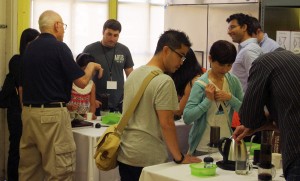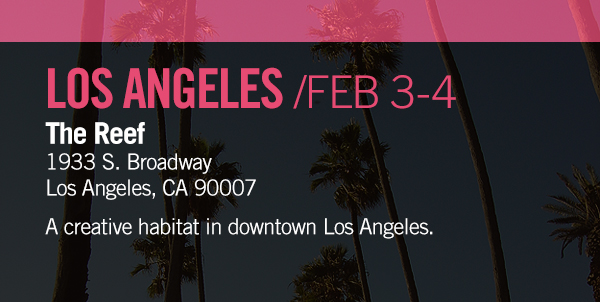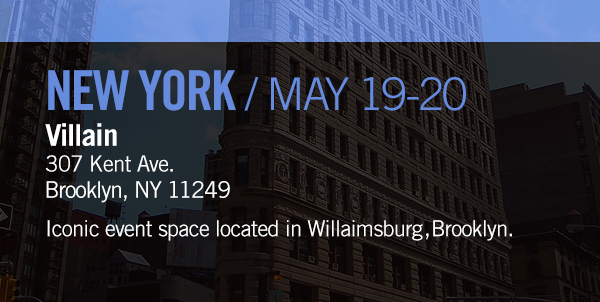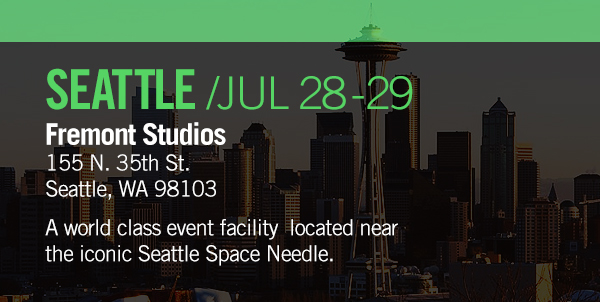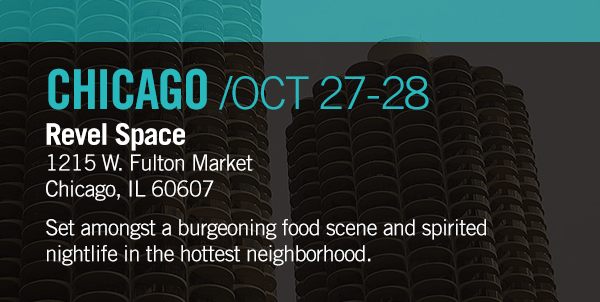You’ll note over the past several CoffeeCon events we’ve converted more classes to hands-on labs. What’s the difference? It’s huge in my observation. The first is the old school way of having the presenter instruct the use of a coffeemaker in front of everyone. Even last year most of our classes were done this way. It’s not bad of course. There are even benefits if you have a good seat. You can see an accomplished expert brewing, and they’ll describe tips they use along the way. You see it, you hopefully will have at least one or two a-ha moments and then you go home, presumably to use that method and copy what you’ve seen.
The trouble is I know too much. Many if not most people don’t learn as well that way. Most of us, myself included, do much better when we are partnered with someone better than us. It’s how I perfected my guitar technique when I worked as a musician. Ten minutes of noodling backstage with a better guitarist was way better than a structured class, even one taught by an accomplished instructor.
When I came to coffee, I knew only what cans of coffee had instructed me, using a Mr Coffee auto drip. Thanks partly due to being an outgoing, affable student, I sought visiting the various experts as I started my writing, folks like George Howell, Kenneth Davids, Christy Thorns and their ilk who could carry on a conversation while they brewed stunningly beautiful, delicious coffee using various brewers. Each of these people are also tremendously active and would eventually turn the brewing over to me, and coach me from the sidelines – what I imagine my cooking would be like if I had a famous chef drinking a glass of wine while I made us dinner. In particular I made a habit every time I traveled to New York to stop by Oren Bloostein’s office (he’d carelessly offered an invitation to visit) and he’d start and I’d finish brewing a Chemex of whatever coffee he was considering, which also added a lesson in evaluating coffee from one of its most persnickety customers.
When I began CoffeeCon, I would occasionally stop into the various classes, and also did some casual followup calls with attendees I’d met and foraged a friendship with. It was easy analysis to note that the more hands-on and personal the class, the more its students got from it in the form of lasting brewing prowess, the only thing that really matters to me.
There’s just something about getting some hands-on time on any of the coffee brewing methods we teach at CoffeeCon. I know you already know how important brewing is to the coffee’s ultimate taste. But, the feeling of water rising up into the siphon and begin bubbling, when it’s best to add the ground coffee, and what if feels like to shut it off and then wait what seems like an eternity for the brewed coffee to start its vacuum back into the bottom vessel is something to be experienced. Seeing it is good, but it’s much better to participate. That’s the secret of success. I’m convinced of it.
Hands-on coffee brewing labs offer another benefit. Instead of a structured class schedule, you can simply drop by. At least that’s what I think. My team will make its final decision and publish it on our class schedule page.
By all means get your tickets. I know. I’m always doing things at the last minute. But, buying your ticket today enthuses our presenters and sponsors. These people really do it for the passion and they like to see your enthusiasm.
